
- Home
- Photography Tours
- Diary / Blog
- Galleries
- Foreign Trips
- Tasmania 2016
- NE Queensland 2016
- Western Alps 2016
- NE Spain 2016
- Australia's Wet Tropics 2015
- Australia's Top End 2015
- SW Australia 2015
- Switzerland 2015
- Andalucia 2015
- Belize 2015
- Australia 2014
- Switzerland 2014
- Belize 2014
- Bahama Islands 2014
- Switzerland 2013
- Ecuador 2012-2013
- Florida 2011-2012
- Vancouver Island 2011
- Australia 2010
- Peru 2008
- Bulgaria 2007
- Lesvos 2006
- California 2006
- New Zealand 2005
- Extremadura 2005
- Goa, India 2004
- The Gambia 2003
- About
June/July 2016
Western Alps : Part 5
Butterflies : Heaths & Ringlets (Nymphalidae: Satyrinae)
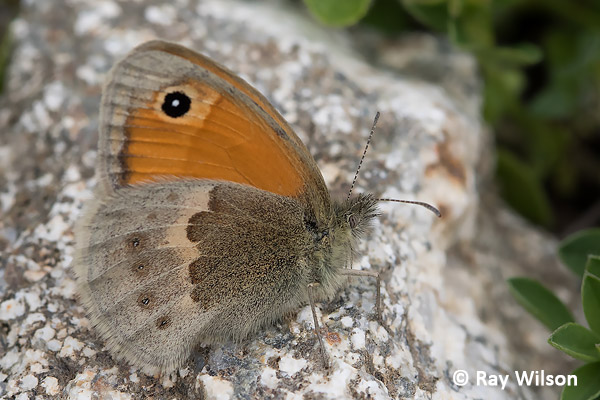
Small Heath (Coenonympha pamphilus)
Of the 5 species of Heaths that occur in the Western Alps the Small Heath should be the species most people are already familiar with, as it is an abundantly common species throughout Europe.
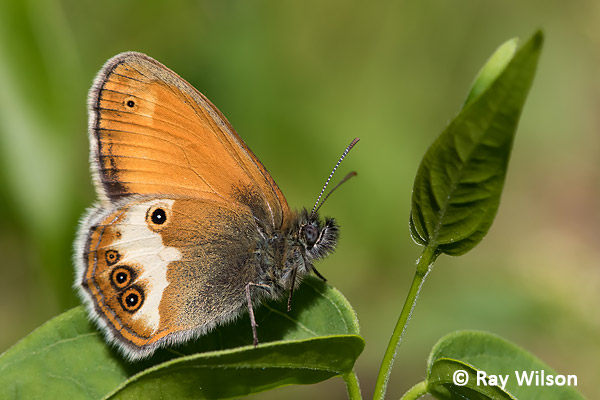
Pearly Heath (Coenonympha arcania)
Pearly Heath is also relatively common throughout most of continental Europe and is easily recognised by the broad white band on the hindwing.
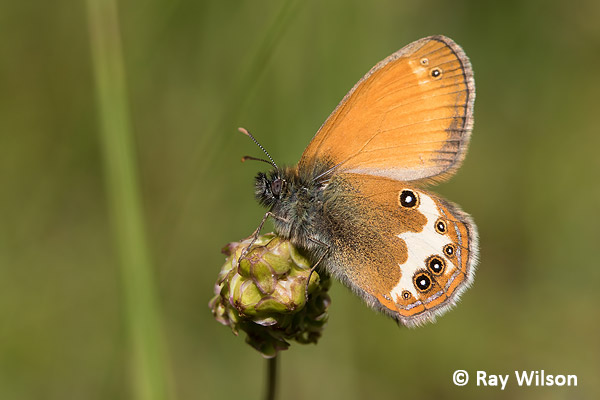
Pearly Heath (Coenonympha arcania)
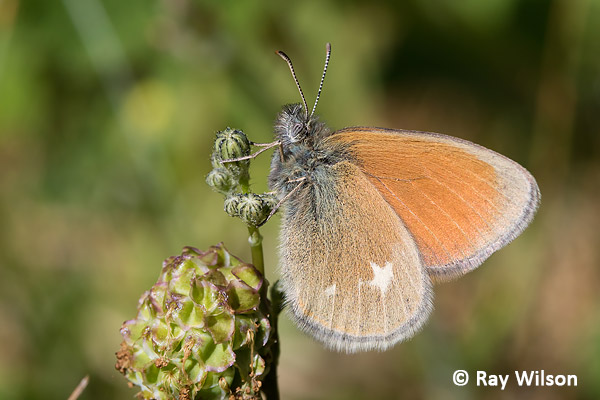
Chestnut Heath (Coenonympha glycerion)
The Western Alps are at the far eastern extent of the range of Chestnut Heath and it is locally common in some areas. The number, size and brightness of the eyespots on the hindwing are very variable and can be completely absent (especially at higher altitudes).
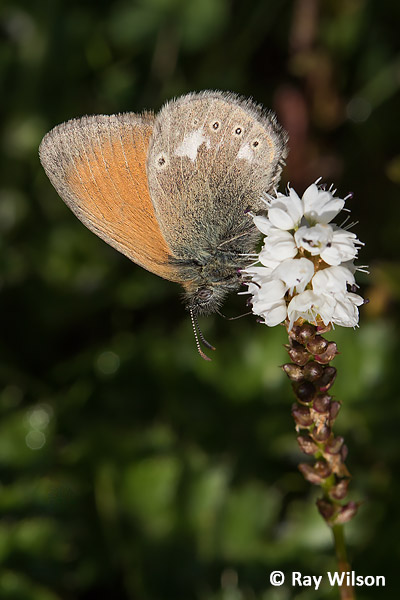
Chestnut Heath (Coenonympha glycerion) |
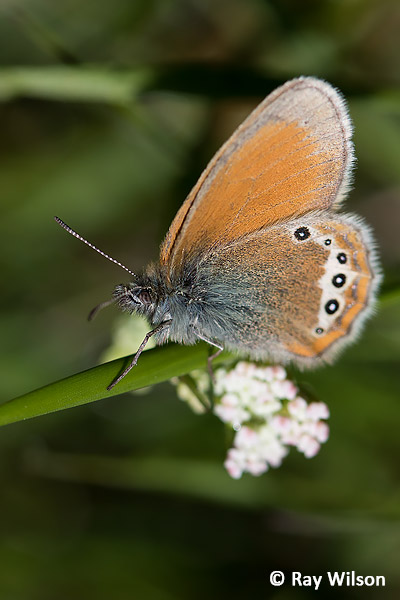
Alpine Heath (Coenonympha gardetta) |
Alpine Heath is a montane species endemic to the Alps and the high mountains of Albania, Serbia & Bosnia. It is mostly found between 1200-2400m altitude but can occur as high as 3000m.
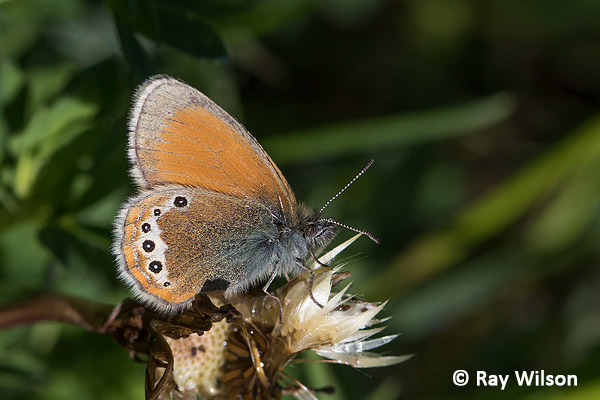
Alpine Heath (Coenonympha gardetta)

Alpine Heath (Coenonympha gardetta)
Ringlets are a tricky group to photograph well and although I saw about a dozen species I didn't have a whole lot of success with photographing them on this trip. They tend to be very active butterflies, rarely sitting still, and when they do stop for a rest they are incredibly vigilant, making getting close enough to photograph them extremely difficult. It is on occasions like these that I wish I had a 180mm macro!
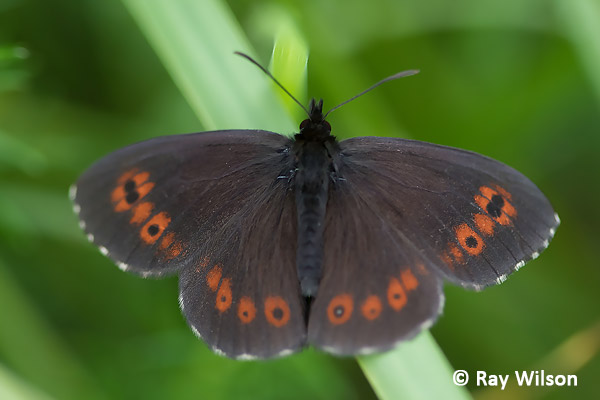
Large Ringlet (Erebia euryale)
Ringlets are also very sensitive to flash so you usually have to rely completely on natural light when photographing them which often results in a very reduced depth of field.
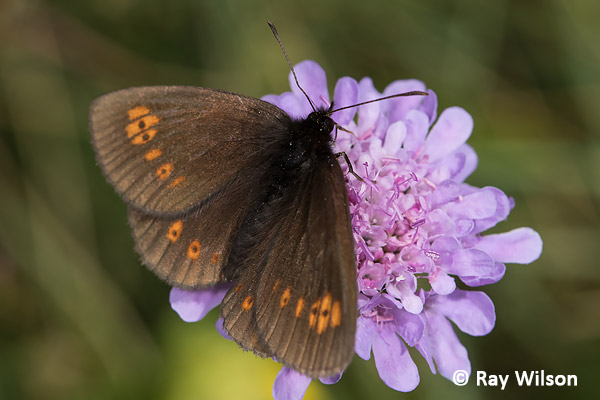
Almond-eyed Ringlet (Erebia alberganus)
Almond-eyed Ringlet is by far the most commonly encountered Ringlet and is abundant in many places.
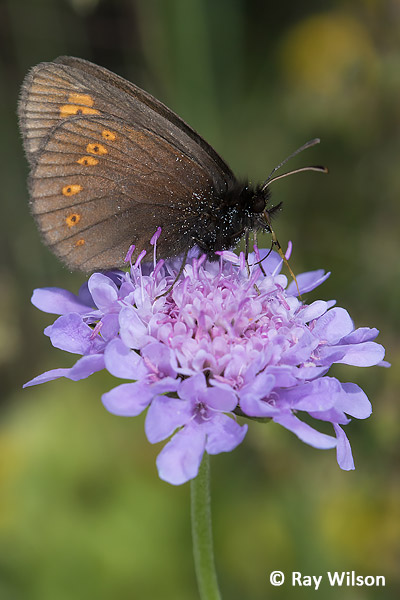
Almond-eyed Ringlet (Erebia alberganus) |
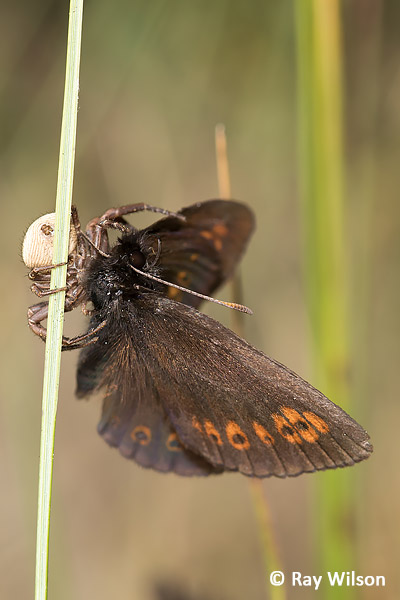
Almond-eyed Ringlet (Erebia alberganus) being eaten by a spider |
Ray Wilson owns the copyright of all images on this site.
They may not be used or copied in any form without prior written permission.
raywilsonphotography@googlemail.com